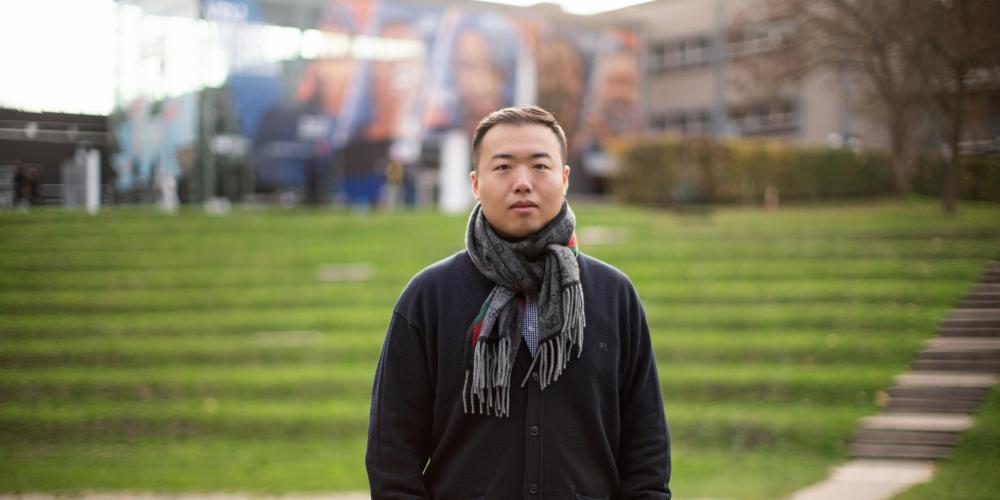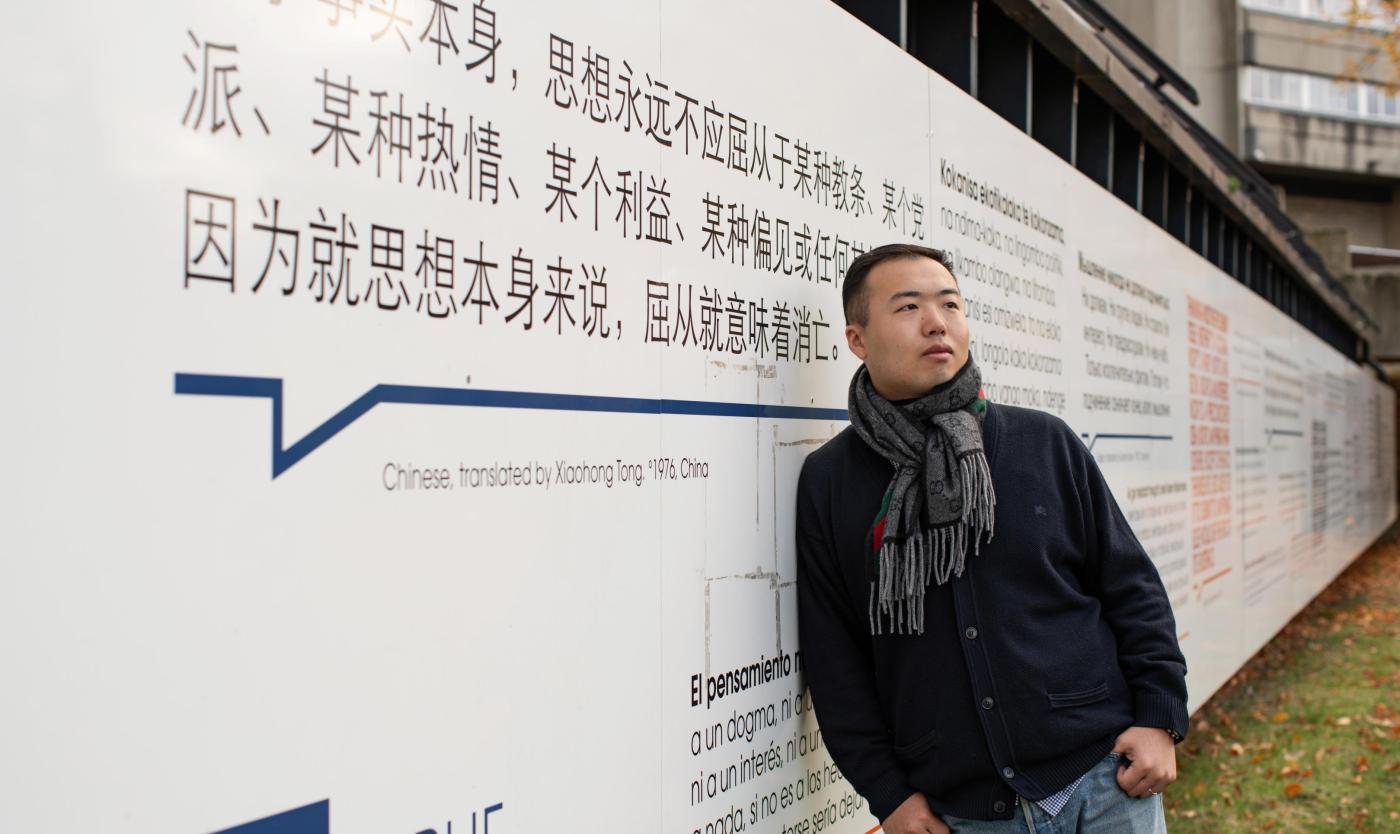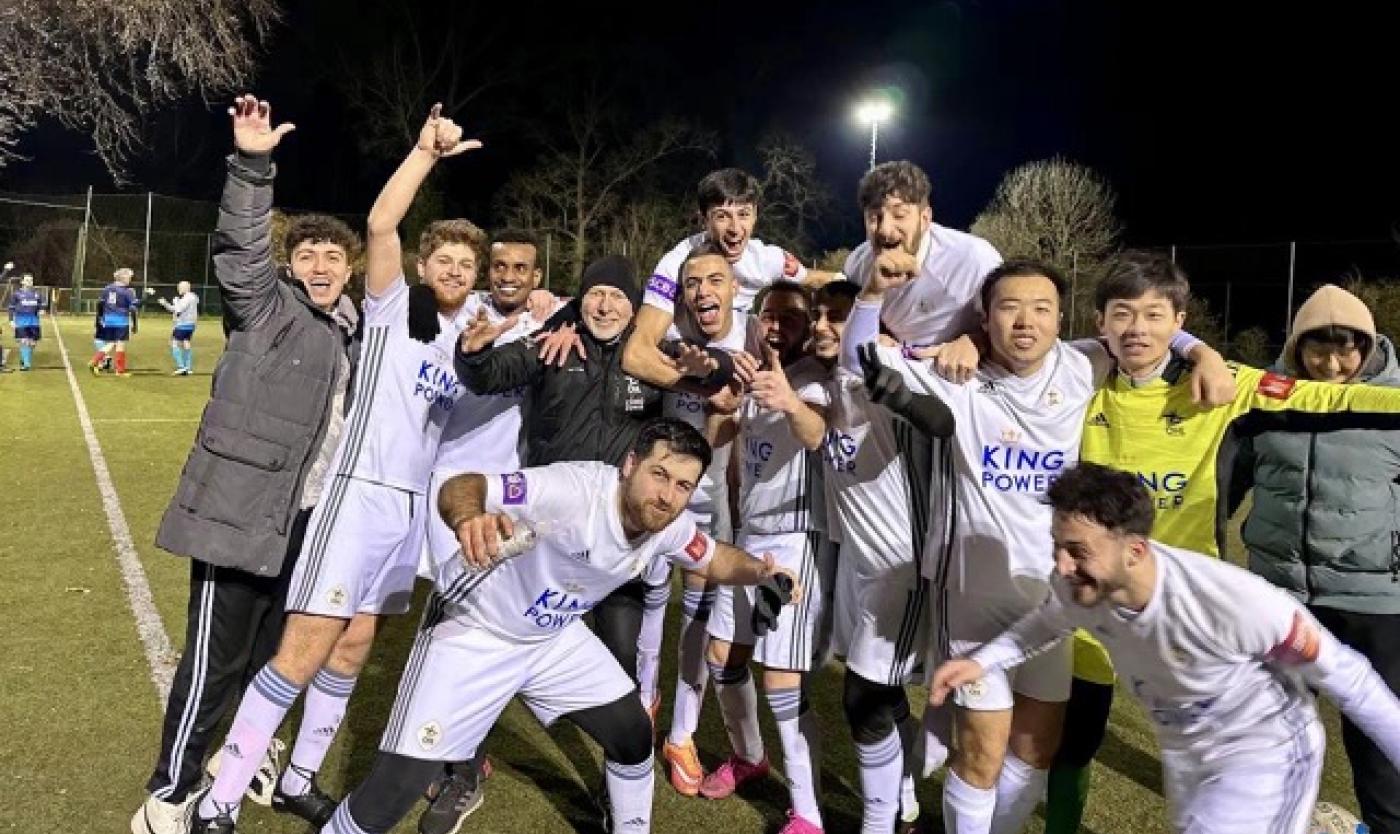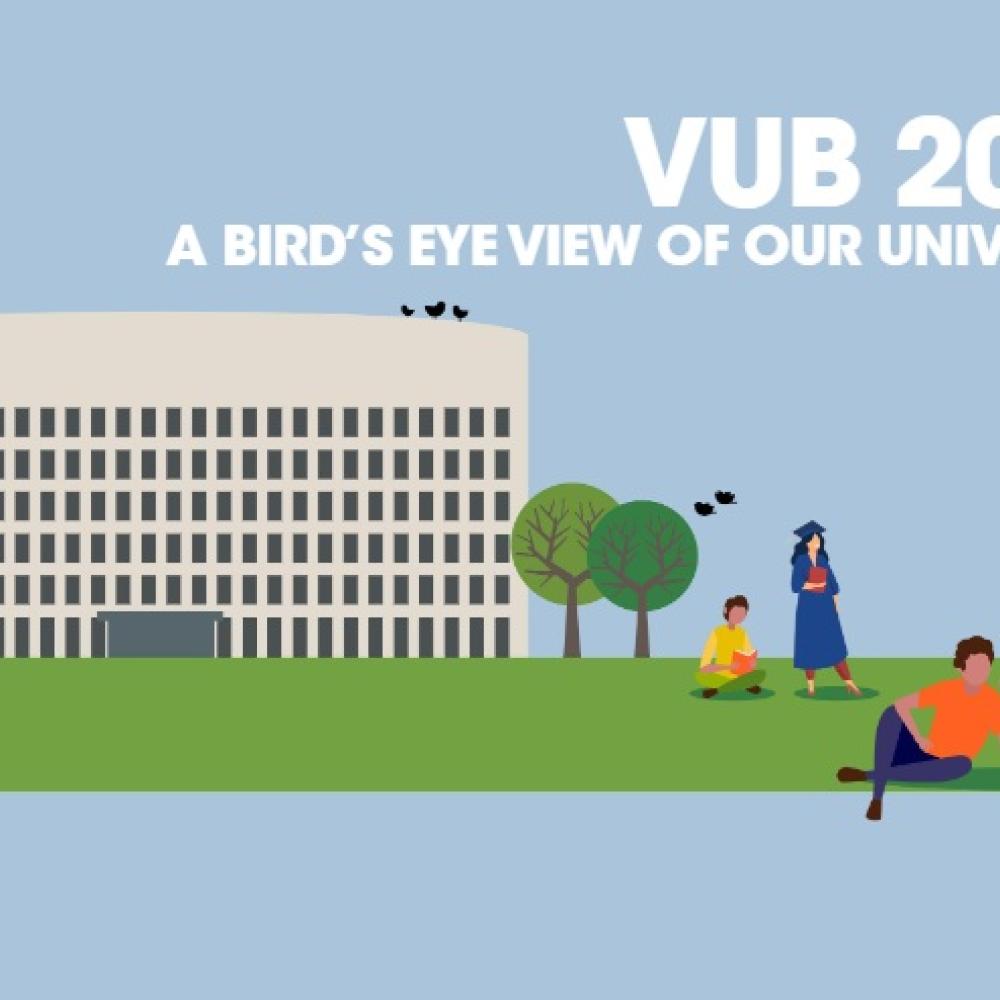
The VUB is one of Belgium’s most international universities: over a third of our students come from abroad. But who are they, what drives them, and how do they experience life in Brussels? In this new series, we introduce you to our international students. Today: Chao Bian from China, researcher in applied sports sciences.

“I’m from Nanjing, in eastern China,” Chao says. “After studying sports science at the Shanghai University of Sport, I received a scholarship from the Chinese government to conduct research at VUB. I study mental fatigue in athletes and how it shapes their performance.”
He works in the Human Physiology and Sports Physiotherapy (MFYS) research group under the guidance of Professor Bart Roelands. “I was looking for experts on this topic and found Professor Romain Meeusen. His work on the link between fatigue, the brain and performance really inspired me. I had already written about the subject myself and soon got the opportunity to join the team.”
Beer, chocolate and post-rock
Before coming to Belgium, he honestly didn’t know much about the country. “Except that I love beer — especially Lambic and Rochefort — and chocolate,” he laughs. “So that was an excellent start. I also knew about the dunk!festival in Ghent, one of Europe’s best-known post-rock festivals. And of course football is a national passion here. That felt familiar, because I used to play professionally in China. Two footballers from my country even played in the Belgian first division: Fangzhuo Dong, a striker at Royal Antwerp FC, and Shangyuan Wang, a midfielder at Club Brugge.”
Football helped Chao feel more at home in Belgium. “I played two seasons for OHL World Team in Leuven (shows his shirt) and trained every Friday afternoon in Kessel-Lo. Sadly, I had to stop because of a meniscus injury. But OHL brought me many new friends.”
Learning to slow down
The biggest challenge remained the language. “I tried learning Dutch, but after studying German, things got mixed up. Luckily, people make a real effort to speak English — although the conversation sometimes slips back into Dutch, and then I struggle to keep up.” The way people interact also took some getting used to. “In China, the distance between students and professors is bigger. Here you can just talk to your supervisor. At first that felt odd, but it makes working together much easier.”
“The most beautiful part of studying abroad is how it broadens your view,” he says. “You meet so many people: Belgians, but also students from all over Europe and beyond. And Belgium has a strong reputation in my field of research. Working with Bart Roelands and Romain Meeusen is truly a privilege.”

There’s one key lesson he plans to carry into his future work. “At VUB I learned to slow down. To focus on quality rather than quantity. Every test we run is questioned in detail — why we do it, what it adds — instead of simply following what others are doing.”
Bridging two worlds
What does the future hold? “My scholarship lasts four years, possibly followed by a postdoc. After that I’ll return to China, probably to teach or to work in a company. But I hope to keep collaborating with Belgian researchers. There’s still so much we can learn from one another.”
And what does he wish people here understood better about China? “That we have a rich cultural heritage and a thriving world of technology and innovation. But also that, despite the stereotype of being ‘hard-working and a bit dull’, we have a deep spiritual world — one that may be overshadowed a little by the language barrier.”
